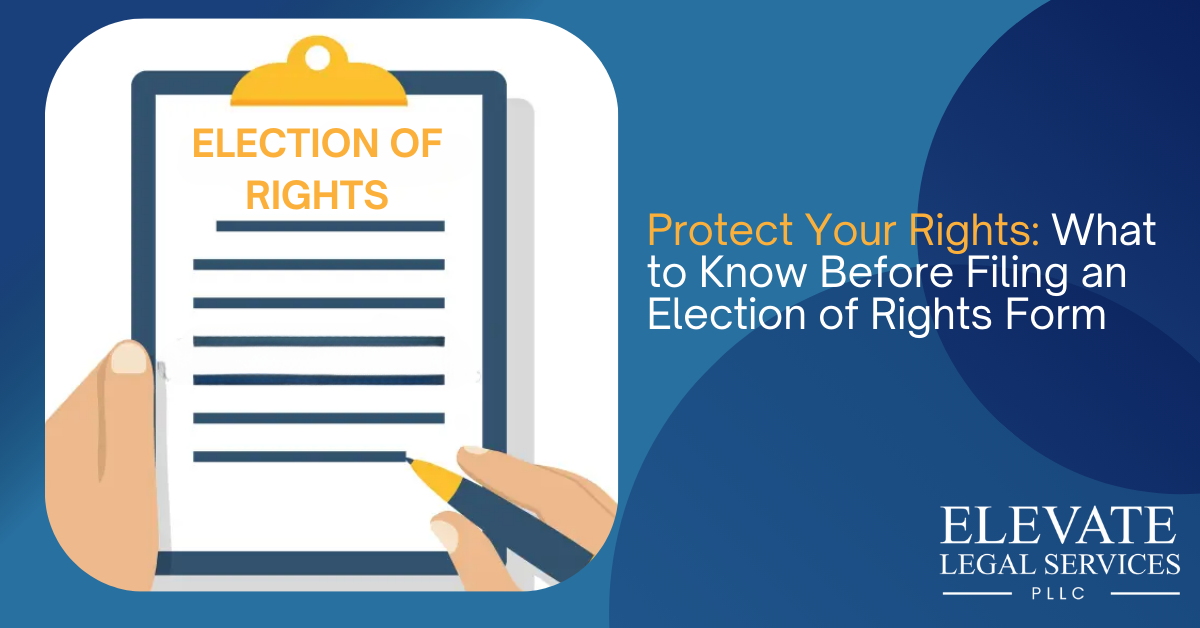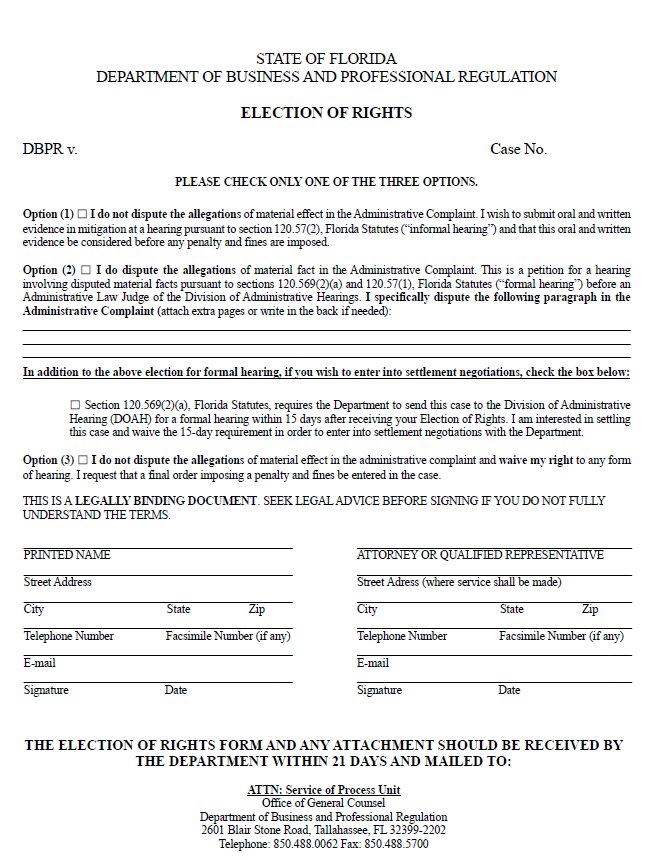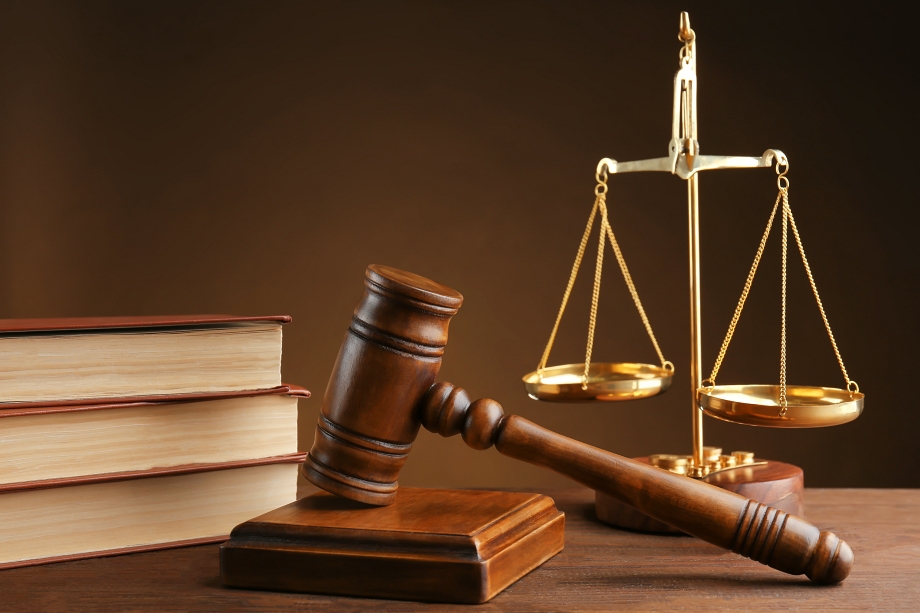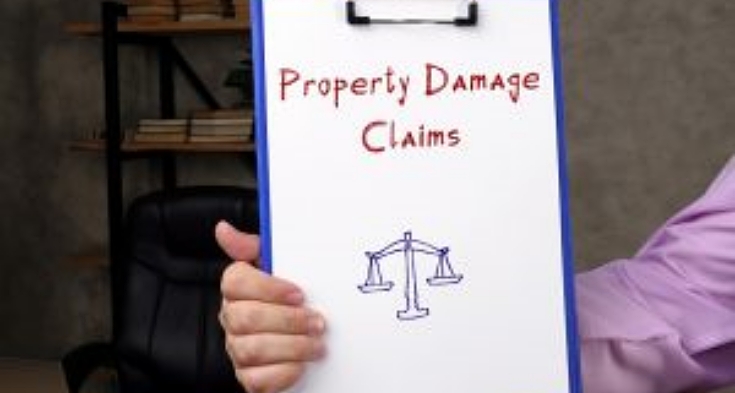
When facing an Administrative Complaint from the Florida Department of Business and Professional Regulation (DBPR), understanding your rights and options is critical. The Election of Rights (EOR) form provides the opportunity to respond to allegations, but the decisions made on this form can significantly impact your case. This article will guide you through the process, helping you make informed decisions to protect your rights and minimize potential penalties.
At Elevate Legal Services, PLLC, we specialize in defending professionals against DBPR Administrative Complaint violations and guiding them through Administrative Proceedings. For expert legal assistance, call us at 561-770-3335 or email [email protected].
What is the Election of Rights Form?
The Election of Rights form allows individuals to respond to an Administrative Complaint filed against them by the DBPR. This complaint typically alleges a violation of professional regulations, and the form outlines three key options for responding:
- Option 1: Informal Hearing
- Option 2: Formal Hearing
- Option 3: Waiver of Hearing Rights
Below is a copy of the Election of Rights form, which outlines the options available for responding to an Administrative Complaint. This form is a serious thing, and understanding each option is essential to making an informed decision about how to proceed. Take a moment to review the form carefully and consult Elevate Legal Services, PLLC,for legal advice if necessary.

Each option carries legal implications and must be chosen carefully. Here’s what you need to know about each:
Option 1: Informal Hearing
If you choose Option 1, you are not disputing the allegations in the Administrative Complaint. Instead, you accept that the facts as stated are true but want to present evidence or arguments to mitigate the penalties.
Key Features of an Informal Hearing:
- Purpose: To reduce the severity of the penalties.
- Evidence Presentation: You can provide written and oral evidence to explain mitigating circumstances.
- Scope: The hearing focuses only on the penalty phase. The allegations themselves are not open for challenge.
When to Choose This Option:
This option is suitable if you acknowledge the violation but believe you have a valid explanation or extenuating circumstances that the DBPR should consider. For example, if the violation occurred due to unforeseen circumstances or if you have since taken corrective action, you could present this evidence to argue for a reduced fine or penalty.
Option 2: Formal Hearing
If you dispute any allegations, opt for a formal hearing. This process involves a full legal proceeding before an Administrative Law Judge (ALJ) from the Division of Administrative Hearings (DOAH).
Key Features:
- Purpose: Challenge the allegations.
- Legal Proceedings: Similar to a trial, with both sides presenting evidence and witnesses.
- Outcome: The ALJ issues a recommended order, which DBPR reviews before issuing a final order.
When to Choose This Option:
Select Option 2 for a formal hearing if you believe the allegations are unfounded, inaccurate, or exaggerated. For instance, if the DBPR alleges that you violated certain regulations, but you have evidence or witnesses that contradict their claims, a formal hearing is your chance to present your case.
How to Prepare:
- Specify Disputed Allegations: Clearly state which parts of the complaint you are challenging.
- Gather Evidence: Collect relevant documents, records, or communications.
- Legal Representation: Hire an experienced Administrative Law Attorney to represent you.
Option 3: Waiver of Hearing Rights
By waiving your hearing rights, you accept the allegations as true and allow DBPR to issue a final order, imposing penalties without further input from you.
Key Features:
- No Opportunity to Contest: You cannot present evidence or argue for reduced penalties.
- Immediate Resolution: DBPR moves directly to issuing fines or other penalties.
- Binding Decision: The final order is binding and difficult to appeal.
When to Choose This Option:
This option should be chosen with extreme caution. It may be appropriate if you fully accept the allegations and are prepared to accept the penalties without contesting or mitigating them. However, it eliminates your ability to provide context or reduce the severity of the consequences.
Settlement Negotiations
In addition to these three options, the Election of Rights form may include a box to indicate your interest in settlement negotiations. By checking this box, you waive the statutory 15-day requirement for the DBPR to forward your case to DOAH for a formal hearing, giving both parties time to explore a resolution.
Benefits of Settlement:
- Reduced Penalties: Potentially lower fines or alternative penalties.
- Faster Resolution: Avoids the time and cost of a hearing.
- Preservation of Reputation: May result in less severe disciplinary records.
Why Legal Advice is Essential
 The Election of Rights form is a legally binding document. Once submitted, the options you select and the rights you waive cannot be easily undone. This is why it’s crucial to seek legal advice before making a decision. An attorney experienced in Administrative Law can help you:
The Election of Rights form is a legally binding document. Once submitted, the options you select and the rights you waive cannot be easily undone. This is why it’s crucial to seek legal advice before making a decision. An attorney experienced in Administrative Law can help you:
- Waived Rights: Missing the chance to contest allegations.
- Harsher Penalties: Missteps can lead to severe fines or license suspension.
- Final Decisions: Once submitted, reversing the process is difficult.
An experienced attorney can help you:
- Evaluate the DBPR’s Case: Identify strengths and weaknesses in the allegations.
- Understand the Consequences: Make informed decisions based on your specific situation.
- Advocate for You: Whether in hearings or settlement negotiations, your attorney will work to protect your rights and minimize penalties.
Conclusion: Protect Your Rights
Responding to a DBPR Administrative Complaint is a critical process that can have long-term impacts on your career. The Election of Rights form gives you options to shape the outcome, but each decision must be carefully considered.
- Option 1 allows you to argue for reduced penalties.
- Option 2 provides the chance to challenge the allegations in a formal hearing.
- Option 3 accepts the allegations and penalties without contest.
Before making a choice, carefully review the administrative complaint, consider your circumstances, and consult with a legal professional. By understanding your rights and options, you can make the best decision to protect your professional future.
Contact Elevate Legal Services, PLLC
At Elevate Legal Services, PLLC, we are dedicated to defending Florida professionals and safeguarding their careers. Call us today at 561-770-3335 or email [email protected] to learn how we can assist you in navigating the Election of Rights process and defending against DBPR Administrative Complaints.





